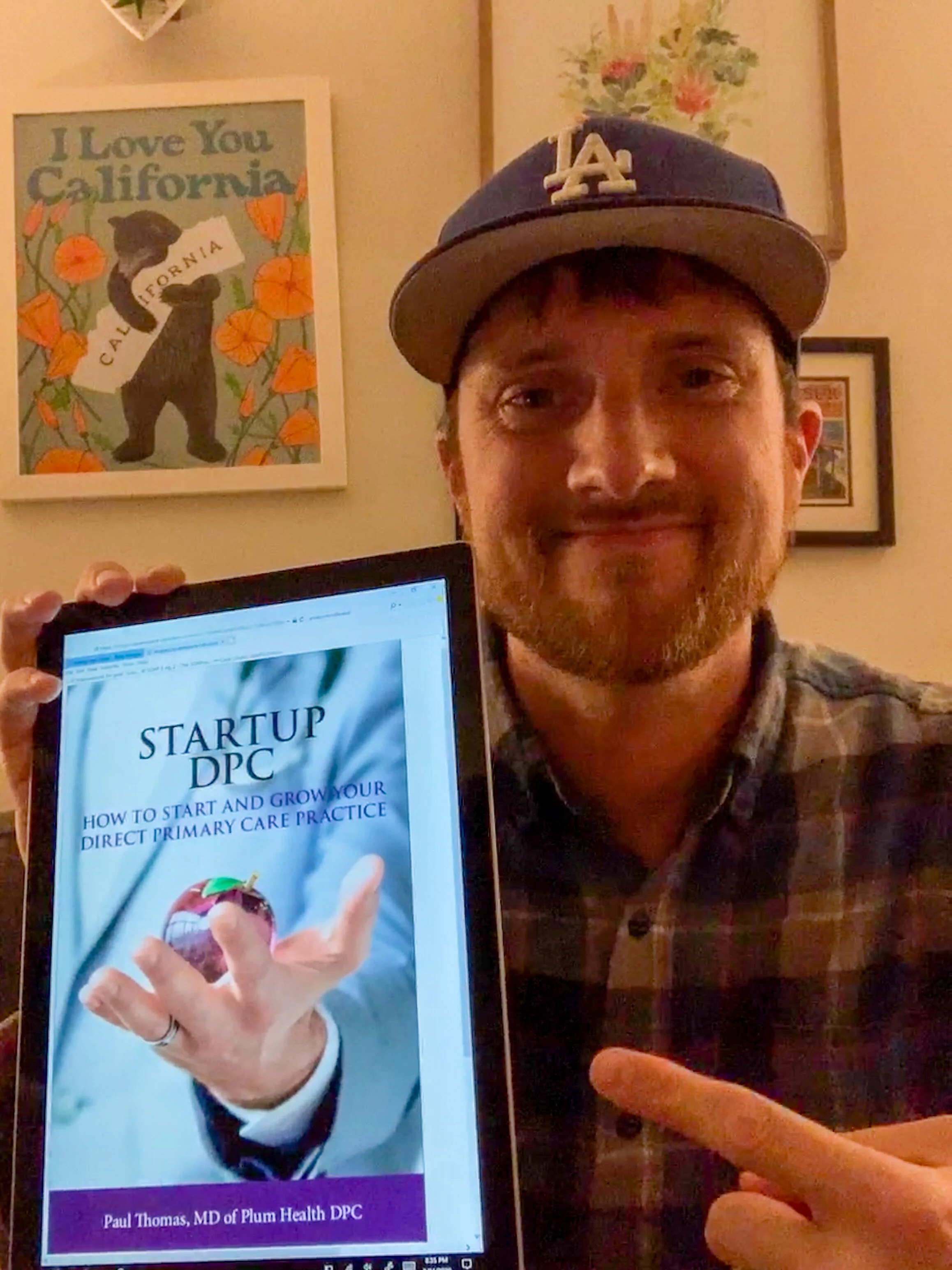This week, we received an amazing review from Chris Wilson, a social worker and critical thinker on healthcare issues for the Startup DPC book:
Hello, my name is Christopher and I am a behavioral health provider in the city of Chicago. I work in an integrated care setting within an infectious disease clinic. I am an avid advocate for comprehensive health care reform and as a result am increasingly curious and open to any voice within healthcare that seeks to offer an alternative to our otherwise failing, expensive, and underwhelming system.
This book and Dr. Paul’s previous book (see here) are about Direct Primary Care (DPC)—this one is specifically aimed at those who may want to consider opening a DPC practice. It is an excellent read and quite detailed—very few questions, if any will go unanswered. His passion for providing excellent care from the perspective of the patient and the doctor is fierce and he does an excellent job of showing just how DPC practices can do just that.
Further, the lost art of truly informed consent is not lost on Dr. Paul. He takes hopeful DPC practitioners through the potential good, bad, and ugly of DPC practices. Heck, Dr. Paul even hypothesizes the types of folks that SHOULDN’T consider this venture.
Yet this won’t be a surprise after getting to know to Dr. Paul in person or through his writings. His authenticity breathes off the pages and he speaks frankly about things in a way that for many will be deeply refreshing when contrasted with the overly sterile, uncompassionate, and impersonable state of many health systems today.
Personally, I want the real deal and someone that will tell me to dig deep when considering a mission statement as opposed to some generic cookie cutter “crap you just put on the wall.” Yes, it’s okay to laugh—humor is good friends and the author isn’t afraid to use it! Dr. Paul is dynamic and radically authentic, in the best way possible.
Hand in hand with authenticity comes transparency. Dr. Paul discusses how transparency and communication is one of the core values of his DPC practice. His writing is no different as this book offers a behind the curtain transparency about a vast range of topics pertaining to Dr. Paul’s personal DPC business ventures…right on down to the nuts and bolts of his personal salary. Again, if you have questions—this book will most likely have the answers.
Listen, as someone who works within healthcare AND is a high utilizer of health care I know how much is wrong with our current system and how much more we deserve as both providers and patients. Dr. Paul also knows this—and he is actively attempting to address it by practicing WITHIN and advocating FOR a system of primary care he knows is better.
Despite my personal experience with top-notch health systems within Los Angeles and Chicago—it will always be infuriating to hear about patients being double or triple booked, services and medications being exorbitantly overpriced, the devastating salaries of healthcare CEOs, the terrible patient experience, etc---the list goes on.
While I’m not quite sure how the DPC movement fits within the broader end goal of bringing universal health care to the USA, Dr. Paul makes a compelling and strong case about how to vastly improve the primary care experience NOW…consider enrolling in and/or starting a DPC practice today.
A recommended read!
Christopher L. Wilson, LCSW
Chris Wilson reviews the Startup DPC book - it’s available in paperback and on Amazon Kindle

